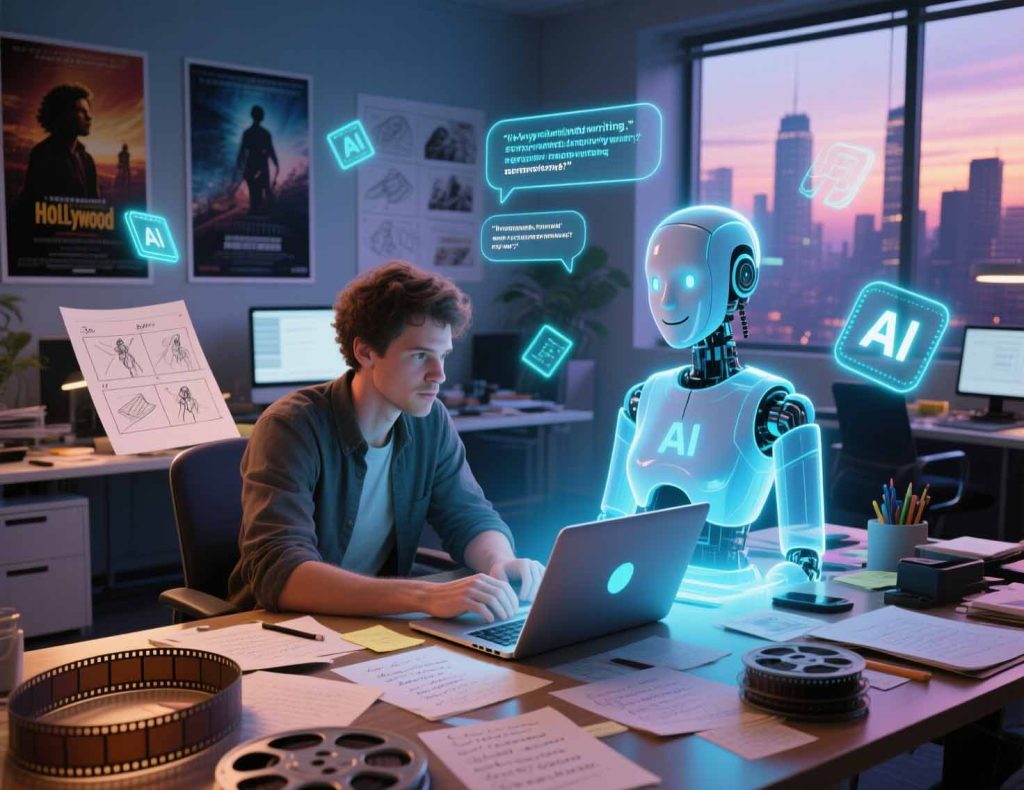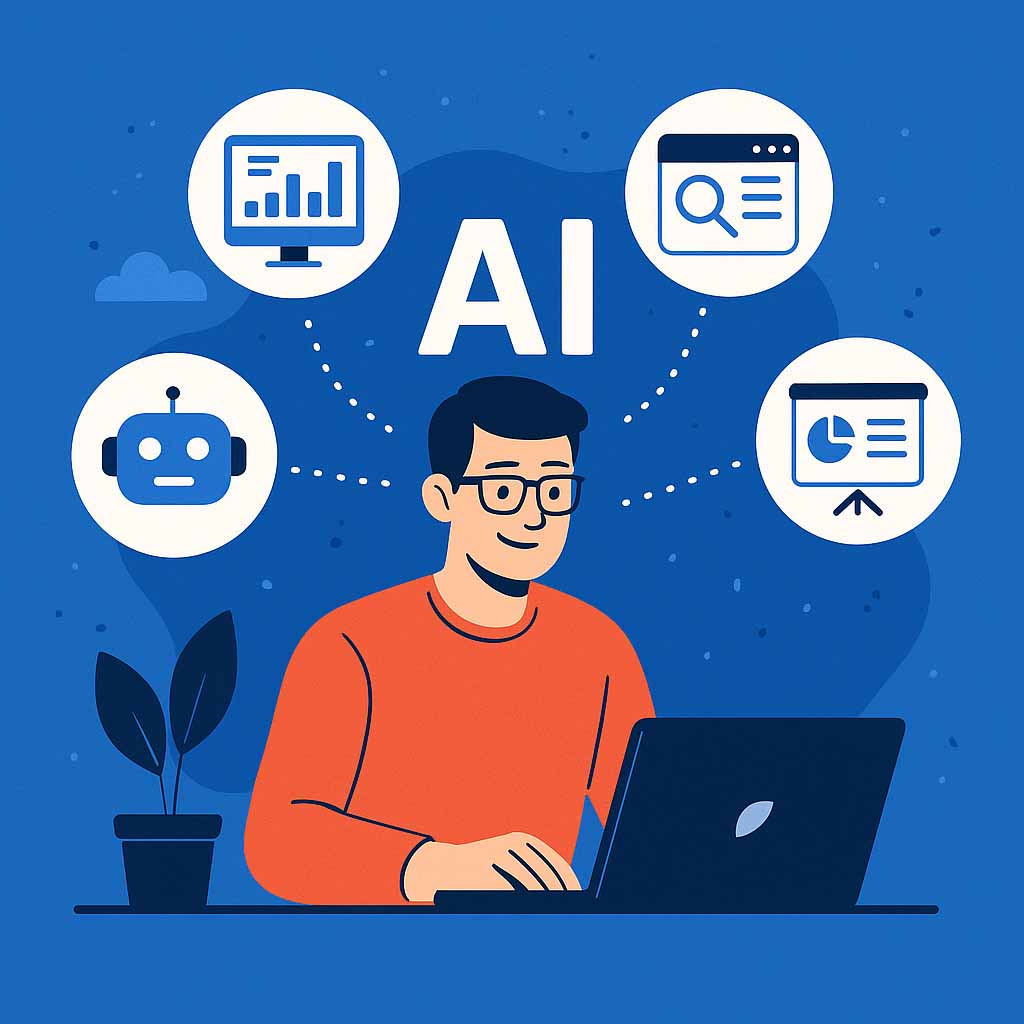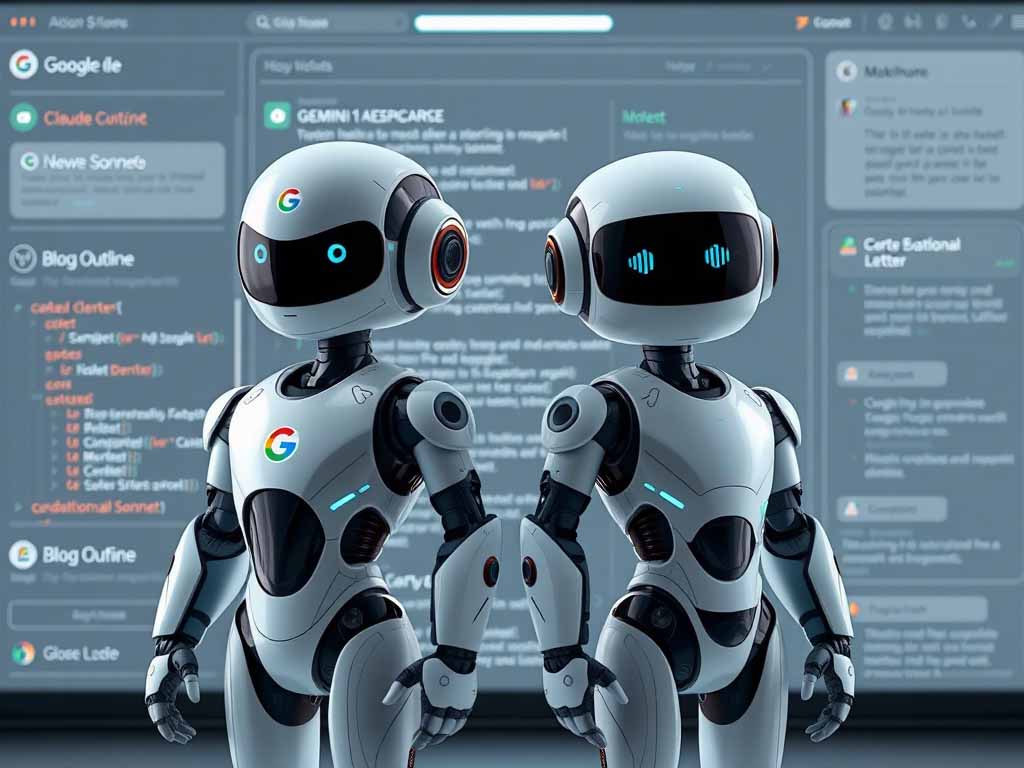Imagine this: You’re at the movies, popcorn in hand. The opening scene rolls, and it’s tense, funny, unpredictable. You’re hooked. Then someone drops the bombshell—an AI helped write this movie. Yep, a machine, not a human, suggested that killer twist or that perfectly timed joke. Weird? A little. Fascinating? Absolutely.
AI in Hollywood isn’t just science fiction anymore—it’s slowly slipping into writers’ rooms, screenwriters’ laptops, and even indie filmmakers’ drafts. But here’s the real question: Can a machine really capture what makes us laugh, cry, or stay glued to a seat?
AI Is the Ultimate Brainstorm Buddy
Think of AI as that friend who has watched every movie ever made, remembers every plot twist, and can spit out ideas faster than you can say “plot hole.” Tools like ChatGPT, Sudowrite, and ScriptAI can suggest scenes, write snippets of dialogue, and even sketch entire story arcs.
For writers, it’s like having a brainstorming partner who never tires, never judges, and can throw out ten ideas when you’re stuck on just one. It can be a lifesaver when you’re staring at a blank page, willing the muse to show up.
Where AI Shines
AI isn’t magic, but it has its strengths. Here’s what it does well:
1. Plot Twists on Demand
Can’t figure out how your hero escapes that impossible trap? AI can throw out a dozen possibilities, from shocking betrayals to heartwarming surprises.
2. Dialogue Assistance
Need your villain to be witty, or your sidekick to deliver snappy one-liners? AI can generate dialogue that fits the tone, letting you focus on the emotional beats.
3. Continuity Checker
Ever noticed a hero suddenly in two places at once? AI can help keep track of characters, timelines, and story details so little mistakes don’t slip through.
4. First Draft Speed
Even seasoned screenwriters spend hours outlining. AI can draft the skeleton of a story in minutes, giving you more time to focus on the soul of the script—the emotions, tension, and human quirks that make stories memorable.
But AI Can’t Feel
Here’s the kicker: No AI can feel. It can mimic patterns, predict dialogue styles, and suggest story beats—but it doesn’t cry when a character loses someone, laugh at a perfectly awkward joke, or agonize over heartbreak.
The emotional depth—the little pauses, the way a character fidgets, the unspoken tension in a glance—is human. That’s what makes audiences connect with movies. AI can imitate, but it can’t truly live the messy, beautiful chaos of life.
Real Experiments in Hollywood
Some filmmakers are already testing the waters:
- A 2023 indie sci-fi short had an AI draft the script. The result? Surprisingly coherent, yet critics said it lacked that punch of humanity that makes a story linger after the credits.
- Streaming platforms like Netflix are experimenting with AI to outline episodic series, suggest plot directions, or even predict audience reactions.
- Indie writers use AI for scene ideas, then tweak them manually—a partnership that speeds up work without losing soul.
The Sweet Spot: AI as a Co-Creator
The magic happens when humans and AI collaborate. Imagine AI as your quirky, hyper-efficient co-writer:
- It generates ideas you’d never think of.
- It keeps track of characters, timelines, and plot points.
- It drafts multiple versions of scenes for you to pick from.
But the heart—the humor, the heartbreak, the messy imperfections? That’s all human. AI doesn’t live life. It can’t stumble through awkward first dates or feel that sinking pit in your stomach when everything goes wrong. Humans bring the chaos, the beauty, and the relatability.
Why Audiences Still Need Humans
Movies are about connection. People don’t just watch stories—they feel them. You can have the most “perfectly structured” AI script, but if it lacks emotion, awkward charm, or subtle humor, it’ll fall flat.
A robot might write a technically correct heartbreak line:
“I never wanted to hurt you. Circumstances made it unavoidable.”
A human, however, will write something messy, awkward, painfully real:
“I tried not to ruin everything… but I tripped over my own mistakes, and somehow, you still got hurt.”
See the difference? One sounds cold and factual; the other makes your chest tighten. That’s human. That’s cinema.
What the Future Holds
AI in scriptwriting is coming, but it won’t replace humans. The future belongs to hybrid teams: humans bringing heart and creativity, AI bringing speed, structure, and idea generation. Think Batman and his Batcomputer—one with emotion, one with efficiency, together unstoppable.
For writers, this is exciting. AI frees you from tedious tasks, gives you new ideas, and helps you focus on the part that matters most: storytelling that moves people.
Tips for Writers Curious About AI
- Use AI to Break Blocks – Let it suggest tricky scenes.
- Keep Emotions Human – Always revise AI dialogue to capture nuance.
- Hybrid Works Best – Combine AI efficiency with human creativity.
- Experiment Freely – Sometimes AI will surprise you with unexpected twists.
Final Thoughts
Can AI write Hollywood’s next blockbuster? Maybe technically. But the soul—the quirks, the emotions, the messy, unpredictable human touch—that remains ours. AI is a powerful co-writer, a brainstorming partner, a continuity checker. But the heartbeat of the story? That’s human.
So, while AI may help script the next sci-fi epic, the laughs, tears, and thrills will always come from people. And honestly, that’s how it should be.



